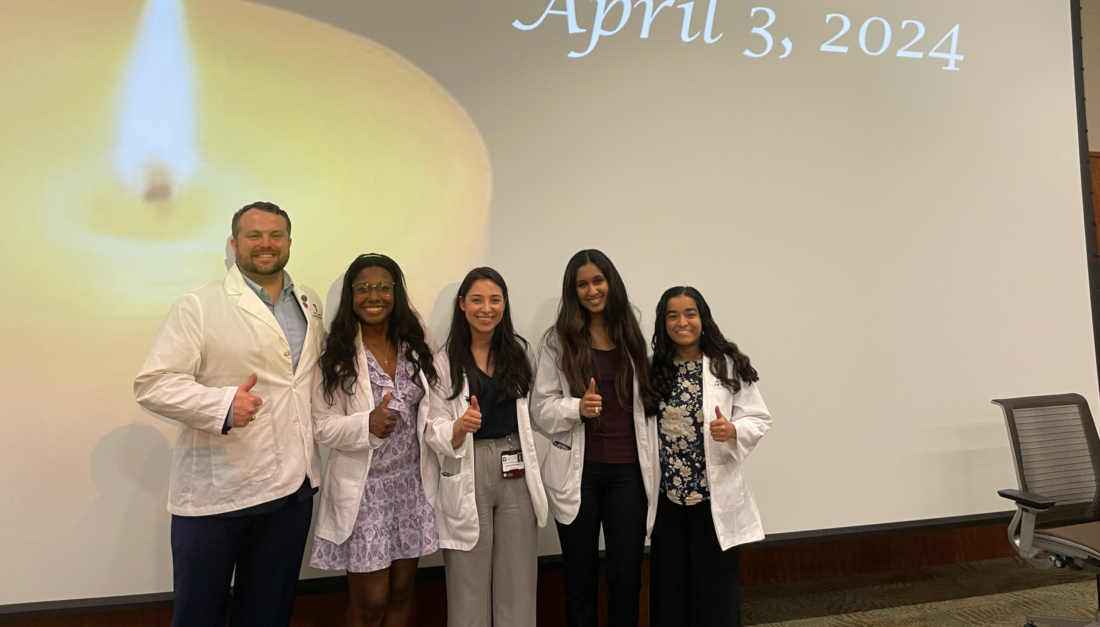- Tamim Choudhury
- Medicine, Public Health, Research, Show on VR homepage
CPRIT awards more than $2.6 million to Texas A&M
Texas A&M faculty awarded grants for cancer research and care

Texas A&M University Health Science Center research
The Cancer Prevention and Research Institute of Texas (CPRIT) recently awarded two research grants totaling more than $2.6 million to faculty members at the Texas A&M University Health Science Center.
Jane Bolin, JD, BSN, PhD, professor at the Texas A&M School of Public Health and director of the Southwest Rural Health Research Center, and David McClellan, MD, an assistant professor of primary care medicine at the Texas A&M College of Medicine, received the first grant. The three-year, $1,499,202 grant is to advance an established colorectal cancer prevention and screening program for rural and underserved Texans, through Texas A&M’s family medicine residency.
The program, called Cancer Screening, Training, Education and Prevention, or C-STEP, provides colonoscopy training to family medicine resident physicians, which increases access to affordable colonoscopies for underinsured or uninsured residents of 21 Texas counties. Bolin serves as co-program director for the interdisciplinary C-STEP program. McClellan and Bolin’s grant falls under CPRIT’s evidence-based cancer prevention services awards.
“Our School of Public Health faculty, students and staff are out in the communities of 19 counties surrounding Brazos County nearly every week and weekend putting on educational sessions and participating in health fairs. This new CRC grant expands our reach to Lavaca, DeWitt, Karnes and Goliad counties,” said Bolin. “A critical part of cancer prevention is education, outreach, recruitment, and of course, reporting out the results for our funders and national audience. Our success record is the high number of cancer screenings for the poor and underserved in this region and our effort was recognized by CPRIT at its November oversight board meeting.”
“It is our hope that this program will serve as a national model for reducing the incidence of colon cancer, as well as incorporating cancer prevention, screening and education into family medicine residency training programs,” McClellan said.
Deqiang Sun, PhD, assistant professor at the Texas A&M Institute of Biosciences and Technology’s Center for Epigenetics & Disease Prevention, received $1,200,000 to conduct research on an improved method for physicians to quickly, and accurately deliver medical care to children with brain tumors. The goal is to use liquid biopsy technologies to assist in the early detection and to guide treatment of children with various types of brain cancer. The project, which will be carried out as a partnership with a team of researchers from Texas Children’s Hospital, will be funded under CPRIT’s special program to support research targeting the diagnosis and treatment of cancers in adolescents and children.
“Everyone on our team placed tremendous efforts into this grant proposal,” said Sun, principal investigator on the project. “We are celebrating with our colleagues from Texas Children’s the opportunity to improve the assessment of the treatment response, the monitoring of disease progression and the detection of cancer recurrence in children with medulloblastoma, a devastating form of pediatric brain cancer.”
Also collaborating on this project is co-principal investigator Yun Huang, PhD, assistant professor at the Texas A&M Institute of Biosciences and Technology, who is the former recipient of a CPRIT first-time tenure track recruitment award.
CPRIT has been tasked by the Texas Legislature to create and expedite cancer research innovation, expand research capabilities and continual development of the state’s cancer plan for research, prevention and control. CPRIT’s core facility support awards are for scientifically meritorious cancer projects that support potentially high-impact cancer studies.
Media contact: media@tamu.edu


